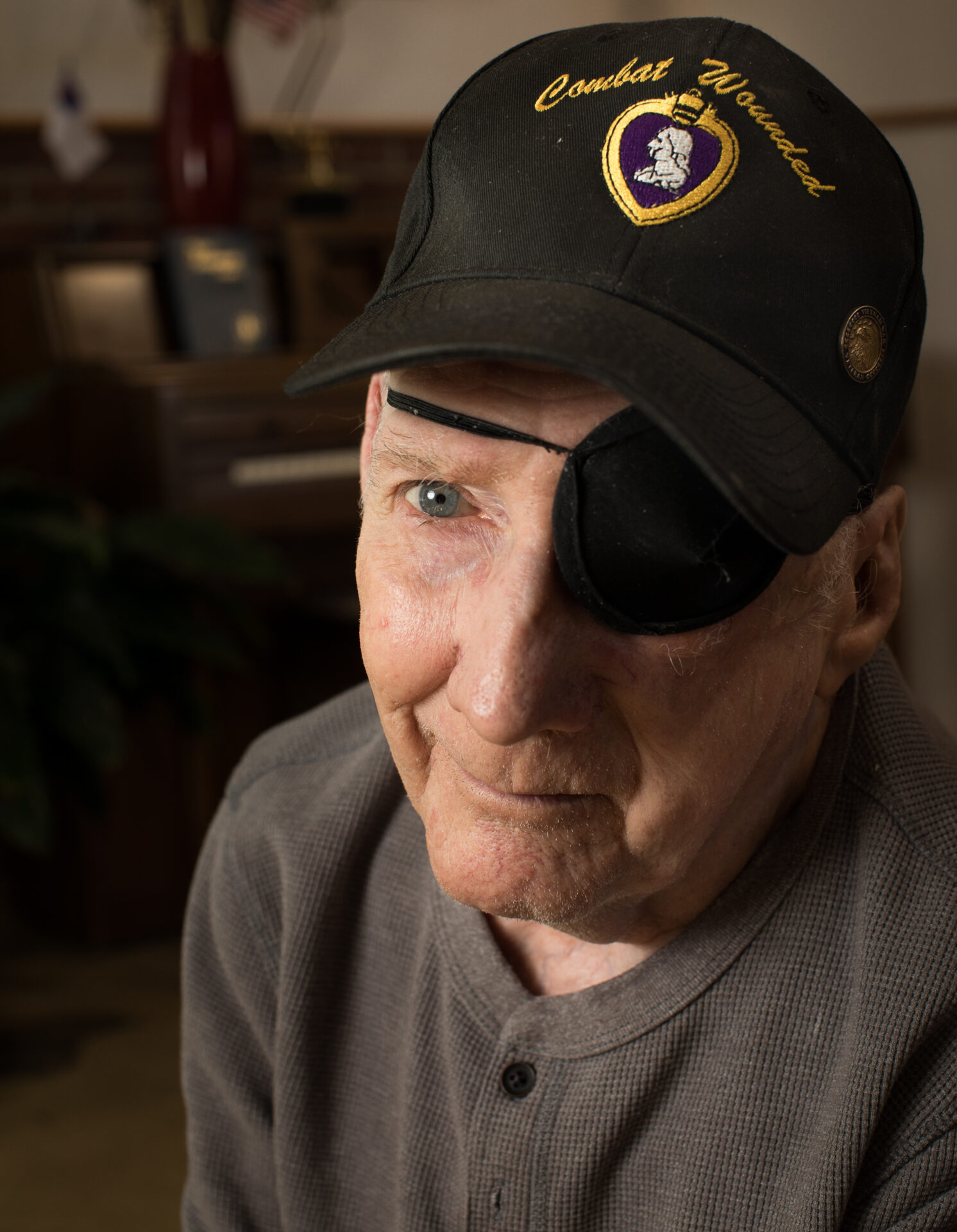By Louise Klinke and Evelyn Smith
UM Honors College Students
*Editor’s Note: These features were produced as a “Profiles in Courage” series by Mark K. Dolan’s freshmen seminar class in the honors college at the University of Mississippi. They were originally published in Circle and Square magazine, produced by Samir “Mr. Magazine™” Husni’s Magazine Innovation Center students.
James “Pete” Ketchum is not only a Vietnam War veteran, but also a victim, a survivor, and a hero.

At 74, he wears a gray, knitted T-shirt, a baseball cap embroidered with the Purple Heart award insignia at the crown. He has small shoulders, inflamed and twisted joints caused by a war fought half a century ago. An eye patch covers his left eye, his right eye is brilliantly blue, and from his wheelchair he recounts growing up in Mississippi.
As a young boy who grew up on a farm, Ketchum was expected to die on that same farm, until the day he was drafted into the Army. A day just like any other, Ketchum finished his work in the family cotton field and ended the day’s work by retrieving the family’s mail. On the walk to the mailbox, he could feel uneasiness in the pit in his stomach. Although the day’s work was over, his life was only beginning. That day, Ketchum received his draft notice and was sent to Seattle for basic training.
Not a day went by someone wasn’t trying to kill Pete. Sleepless nights trekking through steamy, sucking mud and monsoons that would last for 30 days are a stark contrast to the temperature-controlled veterans home, where he watches the rain from a window.
He was reluctant to make friends during the war – Americans, soldiers, brothers yes, but never friends. “You couldn’t get close to nobody in the service. If you did, they’d get killed,” he explains.
He recalled his first enemy raid–– the slosh of the wetlands, shooting and yelling loud enough to make your ears ring, and the sensation of a bullet, how it felt to be hit one, two, three, six times – desperately crawling through hell to find some sliver of safety only to have his eye shot out when looking for his enemy.
His injuries, the physical torment, and strain caused Ketchum to end his stint. Drafted to serve for a year, Ketchum went home after eight months, physically unable to take one step further due to his injuries. Ketchum’s mind stayed in Vietnam though. “All that, the killing, the mosquitos, the leeches, the snakes, the weather, it sticks with you.”
He turned to alcohol to ease the pain that the war left in him. “I couldn’t get the war off my mind,” he says. Booze seemed the best medicine, the only medicine he could find. Slowly, alcohol became as debilitating as the shot that took his left eye, and he battled to stay sober over the years. Not a day went by that somebody wasn’t trying to kill Pete.
Ketchum no longer allows the things in his life that once tried to kill him, be it the Viet Cong or booze, to bear any weight. He breathes life, a survivor. “I just enjoy people,” he says. “I always have. Everybody always says I’ve got a good personality, and it’s just my way. I don’t know how to put it to you. I just like people.”
His biggest battle now is against time. Ketchum laments the passing of family members – relatives fighting cancer, some winning, others losing. He says he knows his time will come, and any day now cancer will find him too. “I have lived a good life,” he says quietly.
Despite the battles he has fought and continues to fight, Ketchum never forgets to count his blessings, starting and ending every day with a smile. Amid declining health, physical and emotional battles, death remains his least fears. “Once you’ve seen death as much as I have, death doesn’t faze you no more,” he says. “To me, death is part of living.
